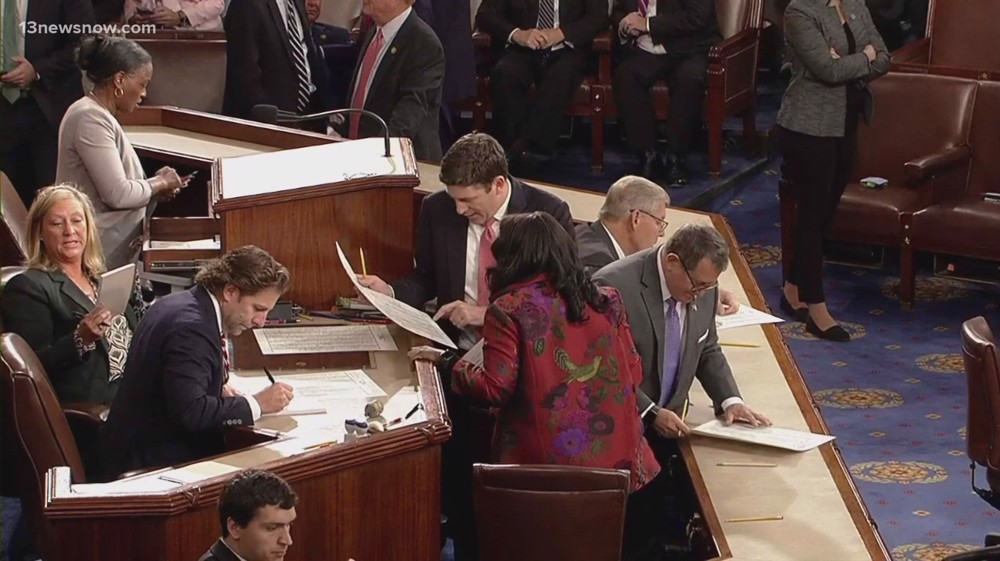US Senate blocks bill as Israel supersedes Ukraine for war funding
An emergency spending bill to provide billions of dollars in new assistance for wars has been blocked in the US Senate, as lawmakers seek to drop Ukraine from the aid package which also includes Israel.
The package would include roughly $60 billion to help Ukraine keep up pressure on Russia and more than $10 billion for the ongoing Israeli aggression against Palestinians in the besieged Gaza strip, plus some aid for Taiwan.
The emergency spending bill included $20 billion for border security.
The vote was 49 in favor to 51 against, leaving the $110.5 billion measure short of the 60 votes needed in the 100-member Senate to pave the way to start debate.
The Republicans in the Senate blocked the White House’s request for a new aid package despite last-minute appeals by President Joe Biden.
Republicans contend that they want more accountability than they are getting from the Biden administration for US taxpayer funds that go to Ukraine.
If the negotiations over the legislation do not produce results in the coming days, the bill could be delayed until after the Christmas holidays.
Some senators are proposing working through the holiday to reach a compromise. However, even if the bill passes the Senate, it will still need to be approved in the Republican-majority US House of Representatives, where dozens of Republicans voted against aid to Ukraine.
In the Republican-led House, Speaker Mike Johnson has made clear he will not agree to sending any more money for Ukraine war.
Biden has led the coalition backing Kiev, but support has been waning among Republicans in Congress, and the administration has warned that it will run out of money for more Ukraine aid in weeks unless lawmakers act.
Binden spoke with Ukrainian President Volodymyr Zelensky and the leaders of G7 nations on Wednesday to discuss how to shore up western aid for Kiev.
Zelensky warned the leaders that Moscow was counting on Western unity to "collapse" next year and said Russia had ramped up pressure on the front lines of the war.
But the precarious prospects for the aid package had been clear since a classified Ukraine briefing for senators Tuesday that saw several Republicans walk out of the session.
Ever since the war began, Kiev's allies, led by the United States and Britain, have been supplying Ukraine with weapons, a step that Russia says would prolong the conflict.
The vote was along party lines, with every Senate Republican voting not along with Senator Bernie Sanders, an independent who generally votes with Democrats but had expressed concerns about funding Israel's "current inhumane military strategy" against Palestinians.
Sanders censures US unconditional military aid to Israel
Sanders criticized the planned aid to Israel and told the Senate, "I do not think we should be appropriating $10.1 billion for the right-wing, extremist Netanyahu government to continue its current military approach.
“What the Netanyahu government is doing is immoral, it is in violation of international law, and the US should not be complicit in those actions," he argued on the Senate floor.
Despite the soaring civilian deaths in Gaza, the Biden administration is not considering using any of the leverage it has over Israel to get the Israeli military to change its tactics.
The current campaign in south Gaza, where there are millions of displaced civilians, is no less brutal than Israeli operations in the north.
The mass slaughter of civilians has not caused the Biden administration to rethink support for the war, and a recent report said the US is “stopping well short” of measures that would force Israel to listen to concerns about civilian casualties, such as restricting military aid.
Instead, US officials have maintained that military aid to Israel is unconditional. The support has involved near-daily weapons shipments, including thousands of massive bombs, and the deployment of more American firepower to the region
VIDEO | Press TV's news headlines
Child detentions surge under Trump deportation campaign: Report
VIDEO | Trump's Gaza 'peace plan' dismissed as 'one-sided and unworkable'
Sheikh Qassem: Hezbollah foiled objectives of enemy’s aggression
VIDEO | Transatlantic rift at Munich Security Conference
‘Textbook definition of terrorism’: Tehran denounces Pelosi’s call on US to exact ‘pain’ on Iranians
VIDEO | 39th AU summit opens in Addis Ababa with focus on water security, peace, and development
VIDEO | Iran: The stronghold Washington lost





















 This makes it easy to access the Press TV website
This makes it easy to access the Press TV website